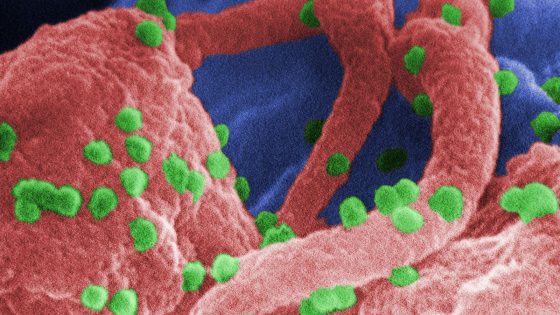A cure for HIV could be on the horizon after scientists eliminated the virus from cells in a laboratory.
Using a gene-editing tool known as Crispr-Cas, researchers were able to target HIV DNA and remove all traces of the virus from infected cells.
Working essentially as scissors, the Nobel Prize-winning technology can cut DNA at certain points, allowing unwanted genes to be deleted or new genetic material to be introduced into cells.
The study authors said their aim is to develop a robust and safe Crispr-Cas regimen, “striving for an inclusive ‘HIV cure for all’ that can inactivate diverse HIV strains across various cellular contexts”.
The scientists at Amsterdam University Medical Centre in the Netherlands said they have developed an efficient attack on the virus in various cells and where it may be hiding.
“These findings represent a pivotal advancement towards designing a cure strategy,” they added.
HIV can infect different types of cells and tissues in the body, so the researchers are looking for a way to target the virus wherever it appears.
In the study, presented at the European Congress of Clinical Microbiology and Infectious Diseases, the researchers focused on parts of the virus that stay the same across all known HIV strains.
They said the approach aims to provide a broad-spectrum therapy capable of combating multiple HIV variants effectively.
Read more:
Charities say government ‘must go further’ to eradicate HIV cases by 2030
How cost of living crisis is preventing the eradication of new HIV transmissions
According to the researchers their work represents proof of concept and the next steps involve optimising the delivery route to target the majority of the HIV reservoir cells.
The hope is to devise a strategy to make this system as safe as possible for future clinical applications and achieve the right balance between efficacy and safety.
“Only then can we consider clinical trials of ‘cure’ in humans to disable the HIV reservoir,” the researchers said.
“While these preliminary findings are very encouraging, it is premature to declare that there is a functional HIV cure on the horizon.”
In the UK, HIV testing rates among heterosexual men and women are down by a quarter compared to before the COVID pandemic, according to the latest data from the UK Health Security Agency (UKHSA).
The number of new HIV cases recorded among heterosexuals passed those in gay and bisexual men for the first time in a decade in 2020, and has continued to be higher each year since.
Source Agencies


